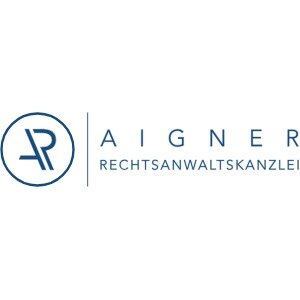Best Tax Increment Financing Lawyers in Austria
Share your needs with us, get contacted by law firms.
Free. Takes 2 min.
Or refine your search by selecting a city:
List of the best lawyers in Austria
About Tax Increment Financing Law in Austria
Tax Increment Financing (TIF) is a public financing method used as a subsidy for redevelopment, infrastructure, and other community-improvement projects in Austria. While TIF is relatively new compared to its use in countries like the United States, it has been increasingly adopted in Austria as a tool to incentivize urban renewal and local development. The central idea is to use future gains in taxes to subsidize current improvements intended to create those gains. TIF in Austria aims to breathe new life into blighted, underdeveloped, or inequitable areas by stimulating private investment through the promise of increased local tax revenue.
Why You May Need a Lawyer
Engaging a lawyer in the context of Tax Increment Financing in Austria can be crucial for several reasons:
1. Understanding Complex Regulations: TIF involves complex legal and financial arrangements that require in-depth knowledge of various regulations and statutes.
2. Structuring Deals: A lawyer can assist in structuring TIF deals in a manner that ensures compliance with legal requirements and optimizes financial outcomes.
3. Negotiations: Lawyers are adept at negotiating terms between municipal bodies, developers, and investors to ensure a fair and equitable agreement for all parties.
4. Legal Representation: Legal disputes can arise regarding the execution and implementation of TIF agreements, where a lawyer will provide representation and protect your interests.
5. Ensuring Transparency: A lawyer can help in maintaining transparency and accountability throughout the TIF process, which is vital for gaining public trust and avoiding litigation.
Local Laws Overview
In Austria, TIF is governed by a mix of national laws and regional statutes. Key aspects of these laws include:
1. Eligibility Criteria: Determines which areas or projects qualify for TIF, often focusing on underdeveloped regions needing economic revitalization.
2. Project Approvals: Required approvals from municipal or regional authorities, ensuring that TIF projects align with local development goals and urban planning objectives.
3. Financial Regulations: Guidelines on how incremental taxes are calculated and used, as well as requirements for financial transparency and accountability.
4. Environmental and Social Impact: Provisions that ensure TIF projects meet environmental standards and contribute positively to the community's social fabric.
5. Monitoring and Compliance: Regular audits and reporting requirements to ensure ongoing compliance with TIF agreements and evaluate project impact.
Frequently Asked Questions
1. What is Tax Increment Financing in Austria?
Tax Increment Financing (TIF) in Austria is a financial tool used for funding redevelopment and infrastructure projects by diverting future tax revenues generated from the increased property values into the project.
2. How does TIF work in Austria?
TIF works by freezing the tax base in a designated area. Any future increase in tax revenues due to property value appreciation is used to finance development projects in that area.
3. Who can initiate a TIF project?
TIF projects can be initiated by local governments or municipalities, often in partnership with private developers aiming to invest in urban renewal projects.
4. Are there specific criteria for TIF eligibility?
Yes, areas or projects must meet certain legal criteria, typically focusing on those with significant potential for economic development and improvement.
5. What types of projects are eligible for TIF?
Eligible projects often include infrastructure improvements, public facilities, housing redevelopment, and other endeavors that stimulate economic growth.
6. Can TIF be used for private development projects?
TIF can indirectly benefit private developments, but projects must generally align with broader public benefit goals set by the municipality.
7. How long does a TIF project typically last?
The duration of a TIF project can vary but generally ranges from 15 to 30 years, depending on the size and scope of the development.
8. What are the risks associated with TIF?
Risks include potential mismanagement of funds, failure to achieve projected tax increments, and socio-economic impacts on existing communities.
9. How is public participation ensured in TIF projects?
Regulations often require public consultation periods, hearings, and transparency reports to ensure community involvement in TIF projects.
10. Are there legal remedies for disputes in TIF projects?
Yes, disputes can be resolved through legal procedures, and having a lawyer can help in addressing any grievances or legal challenges.
Additional Resources
Here are some valuable resources and organizations related to Tax Increment Financing in Austria:
Austrian Institute for Regional Studies and Spatial Planning: Offers insights and research on urban planning and financing tools like TIF.
Local Government Offices: Municipalities often have dedicated offices that manage TIF-related inquiries and provide information on current projects.
Austrian Economic Chamber: Provides guidance for businesses on various financing mechanisms, including TIF.
Legal Professionals Specializing in TIF: Lists of legal experts who have experience in dealing with TIF, available through bar associations.
Next Steps
If you are considering engaging in a TIF project or require legal assistance, here are some steps to follow:
1. Research: Conduct thorough research or consult public records to understand the specific details and requirements of TIF projects in your region.
2. Identify Legal Needs: Determine the specific legal services you require, such as contract drafting, negotiations, compliance checks, or dispute resolution.
3. Consult a Lawyer: Engage with a lawyer who specializes in public finance, real estate, or community development to ensure you have expert guidance.
4. Attend Public Meetings: Participate in public hearings or consultations regarding TIF projects to raise any questions or concerns you might have.
5. Review Legal Resources: Utilize available legal resources and directories to find experienced legal practitioners in TIF.
By following these steps, you can ensure you are well-prepared and informed when engaging with Tax Increment Financing projects in Austria.
Lawzana helps you find the best lawyers and law firms in Austria through a curated and pre-screened list of qualified legal professionals. Our platform offers rankings and detailed profiles of attorneys and law firms, allowing you to compare based on practice areas, including Tax Increment Financing, experience, and client feedback.
Each profile includes a description of the firm's areas of practice, client reviews, team members and partners, year of establishment, spoken languages, office locations, contact information, social media presence, and any published articles or resources. Most firms on our platform speak English and are experienced in both local and international legal matters.
Get a quote from top-rated law firms in Austria — quickly, securely, and without unnecessary hassle.
Disclaimer:
The information provided on this page is for general informational purposes only and does not constitute legal advice. While we strive to ensure the accuracy and relevance of the content, legal information may change over time, and interpretations of the law can vary. You should always consult with a qualified legal professional for advice specific to your situation.
We disclaim all liability for actions taken or not taken based on the content of this page. If you believe any information is incorrect or outdated, please contact us, and we will review and update it where appropriate.
Browse tax increment financing law firms by city in Austria
Refine your search by selecting a city.
















